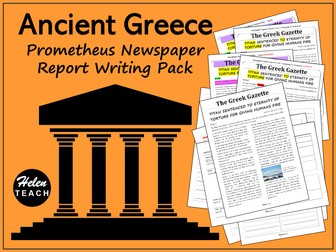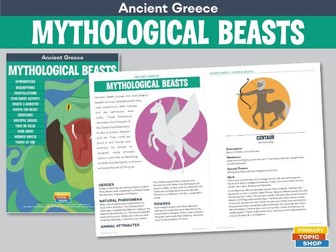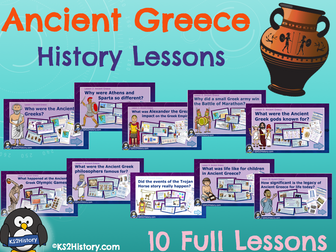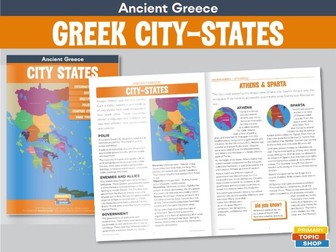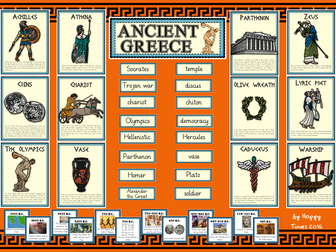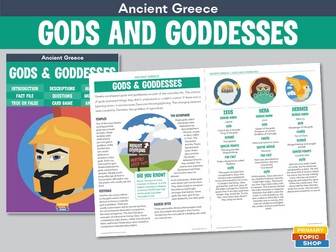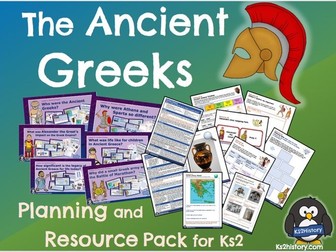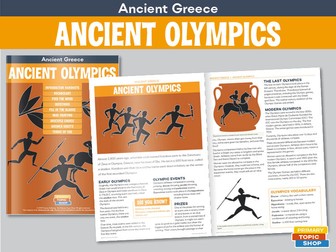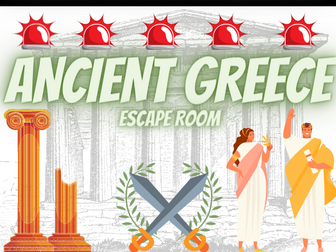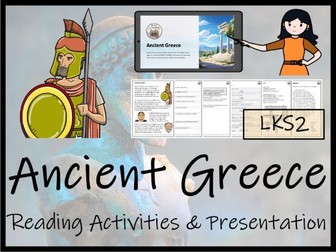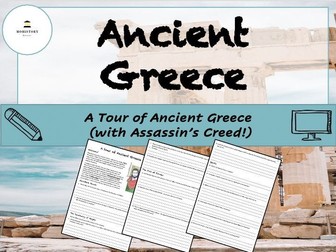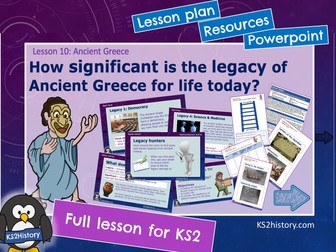Prometheus Newspaper Report WAGOLL Pack | Ancient Greece
Example newspaper report based on the ancient Greek myth of Prometheus and the theft of fire.
This exemplar newspaper article is perfect to use as a WAGOLL when studying the ancient Greeks. The example text reports on the sentencing of the god Prometheus to an eternity of torment on a rock as punishment for defying Zeus.
The model newspaper report comes with two feature identification worksheets for children to fill in, one for layout features and one for language and grammar features, plus answer sheets.
After reading the exemplar text and finding its features, pupils use the templates provided to plan and write their own newspaper report based on the example text. Pupils’ reports could be about the events in the Prometheus story or any other story from ancient Greece such as Pandora’s Box, Theseus and the Minotaur, Daedalus and Icarus, or Perseus and the Gorgon Medusa.
This resource comes with the following documents:
• Example newspaper report
• Feature find sheets, x2
• Feature find answers, x2
• Newspaper report planning template
• Newspaper report writing templates x2
The features in the text include:
• Headline in the present tense
• Byline
• Date
• Introductory paragraph containing the 4 Ws
• Quotes, with inverted commas
• Photograph with caption
• Alliteration in the headline
• Past tense
• Third person
• Relative clauses
• Fronted adverbials
• Possessive nouns
• Expanded noun phrases
• Prepositional phrases
• Subordinate clauses
• Omission of ‘that’
• Modal verbs
• Passive voice
All resources come as both easily editable Word documents and PDFs.
If you buy this resource and are pleased with your purchase, leave a review and receive another up to the value of this one for free. Just email helen-teach@outlook.com with your username, the reviewed resource and the resource you would like for free.
Other ancient Greece resources:
✦ Myths & Monsters Model Text Packs BUNDLE
✦ Persephone Model Letters Pack
✦ Theseus and the Minotaur Diary Entries WAGOLL Pack
✦ Monsters Example Instructional Text Pack
✦ Monsters Example Non-Chronological Report Text Pack
Other popular resources:
✦ The Iron Man Unit of Work | Four Weeks | Year 3/4
✦ Stig of the Dump Complete Unit of Work | Six Weeks | Year 3/4
Visit Helen-Teach’s Shop for more resources.
